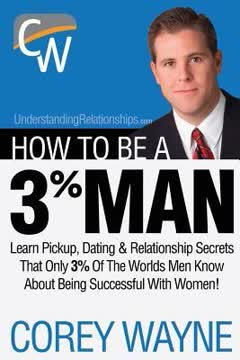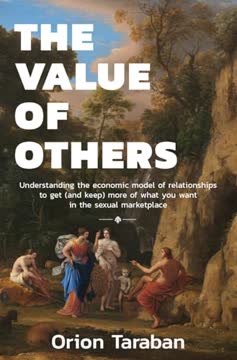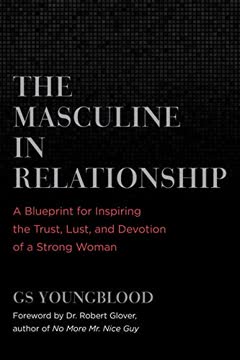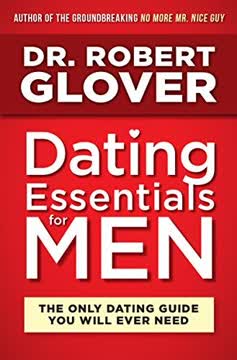Key Takeaways
1. Understand the Nice Guy Syndrome (NGS) and its hidden costs.
The term Nice Guy is actually a misnomer because Nice Guys are often anything but nice.
Nice Guys believe that if they are good, giving, and caring, they will in return be happy, loved, and fulfilled. This core belief, the Nice Guy Syndrome (NGS), is a myth. When this strategy fails, Nice Guys often just try harder, leading to frustration and resentment.
Beneath the "nice" facade, Nice Guys exhibit traits like dishonesty, secretiveness, manipulation, control, passive-aggression, and repressed rage. They give to get, avoid conflict, and struggle with boundaries. These behaviors stem from a deep-seated need for approval and a fear of disapproval.
The consequences are significant, impacting relationships, sex life, and overall potential. While initially appearing appealing, the underlying issues cause instability and dissatisfaction, leading to a cycle of trying harder at ineffective strategies. Breaking free requires challenging this core belief system.
2. The Nice Guy Syndrome originates in childhood abandonment and toxic shame.
Becoming a Nice Guy is a way of coping with situations where it does not feel safe or acceptable for a boy or man to be just who he is.
Early experiences shape beliefs. Children are born helpless and ego-centered, fearing abandonment. When their needs aren't met consistently or healthily, they often believe they are the cause, leading to toxic shame – the belief that they are inherently bad or defective.
Survival mechanisms develop. To cope with this pain and prevent future abandonment, children create strategies. Trying to be "good," hiding perceived flaws, and becoming what they think others want them to be are common survival mechanisms that form the basis of the Nice Guy paradigm.
Social factors amplify NGS. Post-WWII societal changes like absent fathers, female-dominated education, and radical feminism reinforced the message that it wasn't safe or acceptable to be a man just as he was. This conditioning pushed many men to seek female approval and suppress masculine traits, contributing to the prevalence of NGS.
3. Stop seeking external approval; learn to please yourself.
By trying to please everyone, Nice Guys often end up pleasing no one—including themselves.
Approval seeking is central. Nice Guys constantly seek validation from others, attaching their worth to external factors like appearance, achievements, or being "nice." This is a direct result of toxic shame, as they believe their inherent "badness" must be compensated for to be loved.
Attachments define worth. Nice Guys use "attachments"—things they do or have—to feel valuable and gain approval. Being a Nice Guy itself is the ultimate attachment, a belief that their goodness makes them lovable, masking their fear that if people knew the "real" them, they would be rejected.
Shift focus inward. Recovery involves consciously practicing being oneself and seeking self-approval. This means paying attention to approval-seeking behaviors, taking good care of oneself (even when it feels uncomfortable), using positive affirmations, spending time alone for self-discovery, and revealing one's true self to safe people to release shame.
4. Make your own needs a priority, not others'.
Making the decision to put one’s self first is the hardest part.
Low maintenance facade. Nice Guys are conditioned to appear needless and wantless, believing their needs drove people away in childhood. This creates an unsolvable bind: they can't repress needs entirely, but they can't meet them alone, leading to indirect and manipulative attempts.
Poor receivers of help. Nice Guys struggle to receive because getting their needs met contradicts their core belief that they are unworthy. They unconsciously sabotage opportunities by:
- Connecting with needy or unavailable people.
- Operating from unspoken, unclear agendas.
- Pushing people away or self-sabotaging.
Covert contracts dominate. Nice Guys use unspoken agreements ("I will do X for you, so you will do Y for me") to get needs met indirectly. This "giving to get" strategy leads to frustration and resentment, often resulting in "victim pukes"—passive-aggressive behavior, blaming, or rage when the unspoken contract isn't fulfilled.
5. Reclaim your personal power by facing fear and setting boundaries.
Surrender doesn’t mean giving up, it means letting go of what one can’t change and changing what one can.
A paradigm of powerlessness. Nice Guys feel like victims because their core belief system is based on childhood helplessness. They try to control life by "doing it right" and avoiding conflict, but life is inherently chaotic, making this strategy futile and perpetuating feelings of powerlessness.
Personal power is confidence. It's the belief that you can handle whatever comes, even when afraid. Reclaiming this power involves:
- Surrendering: Accepting what you can't control and focusing on what you can.
- Dwelling in reality: Seeing people and situations as they are, not as you wish them to be.
- Expressing feelings: Reconnecting with and expressing emotions, which are not life-threatening.
Integrity and boundaries are key. Developing integrity means deciding what feels right to you and doing it, rather than relying on external validation. Setting boundaries is essential for survival; it teaches others how to treat you and allows you to stop feeling like a helpless victim by taking responsibility for your own space and needs.
6. Embrace your masculinity and connect with other men.
Contrary to the prevailing sentiments of the last few decades, it is OK to be a guy.
Disconnected from men and masculinity. Due to absent fathers and female-dominated upbringing, many Nice Guys struggle to connect with other men and have adopted a female definition of masculinity. They often believe they are "different" or "better" than other men, isolating themselves from healthy male bonding.
Repressing masculine energy. Nice Guys fear the "darker" aspects of masculinity (aggression, competitiveness) and suppress their life energy, becoming passive and lacking leadership. This ironically makes them less attractive to women, who often seek a man with a discernible masculine edge.
Break the maternal bond. Many Nice Guys remain unconsciously "monogamous" to their mothers, hindering adult intimate relationships. Reclaiming masculinity involves:
- Connecting with men: Building male friendships through shared activities.
- Getting strong: Embracing physical and emotional strength.
- Finding role models: Identifying and learning from healthy male examples.
- Re-examining father relationship: Seeing fathers realistically to accept one's own male heritage.
7. Build healthy intimate relationships by focusing on the system, not just the partner.
Intimacy implies vulnerability.
Intimacy is terrifying. Knowing oneself, being known, and knowing another requires vulnerability, which is life-threatening for Nice Guys due to their toxic shame. They fear being "found out" and rejected if someone gets too close.
Dysfunctional relationships are co-created. To balance the fear of vulnerability and isolation, Nice Guys partner with equally wounded individuals. They co-create systems that protect them from true intimacy while simultaneously causing frustration. The partner's "problems" often serve to distract from the Nice Guy's own shame.
Patterns of enmeshment or avoidance. Nice Guys either become overly involved (enmesher, making partner emotional center) or emotionally unavailable (avoider, prioritizing other things). Both patterns prevent genuine connection. They also unconsciously recreate familiar, dysfunctional childhood relationship dynamics.
8. Address sexual shame and fear to get the sex you want.
All Nice Guys have shame and fear about being sexual and about being sexual beings.
Sex is a focal point for issues. Nice Guys' shame, fear, control issues, and dysfunctional patterns converge in their sex lives, leading to common problems like not enough sex, unsatisfying sex, sexual dysfunction, repression, or compulsivity. They often blame their partner, but their own internal baggage is the root cause.
Avoidance and distraction mechanisms. Nice Guys employ strategies like "vagiphobia" (avoiding penetration or getting out quickly), trying too hard to be a "good lover" (focusing on partner's pleasure to distract from own shame), hiding compulsive behaviors (pornography, affairs), and repressing life energy (making them less attractive). These prevent genuine sexual connection.
Come out of the closet. Healing requires exposing sexual shame and fear to safe, non-judgmental people. Taking responsibility for one's own pleasure through healthy masturbation (without fantasy or pornography) is crucial for learning to receive pleasure and connect with one's own sexual energy. Saying "no" to bad sex and refusing to settle for less than fulfilling, reciprocal experiences is essential.
9. Overcome fear and self-sabotage to live your desired life and career.
If I were to identify one common factor at the core of every problem experienced by Nice Guys, it would be fear.
Fear limits potential. Nice Guys are often intelligent and capable but fall short of their potential in life and career due to pervasive fear. They fear making mistakes, failure, criticism, and even success itself, which might expose their perceived inadequacy.
Self-imposed limitations. Trying to "do it right," striving for perfection, and following rules stifle creativity and passion. Believing they must do everything themselves prevents delegation and mastery. Self-sabotage through procrastination, wasting time, or getting caught in chaotic relationships ensures they never reach their full potential.
Distorted self-image and deprivation thinking. Childhood experiences lead to a deep-seated sense of inadequacy and a belief that there isn't enough to go around. This creates an emotional "glass ceiling" and "deprivation thinking," causing Nice Guys to think small, settle for mediocrity, and unconsciously recreate dysfunctional family patterns in their work lives.
Last updated:
Review Summary
No More Mr. Nice Guy receives mixed reviews, with ratings ranging from 1 to 5 stars. Some readers find it insightful and transformative, praising its practical advice for men to overcome people-pleasing tendencies and set boundaries. Others criticize it for being repetitive, sexist, and overly simplistic. The book's core message of encouraging men to prioritize their own needs and be more authentic resonates with many, but its approach and some of the author's views are controversial. Despite its flaws, many readers still recommend it as a valuable resource for personal growth.
Similar Books










Download PDF
Download EPUB
.epub digital book format is ideal for reading ebooks on phones, tablets, and e-readers.






